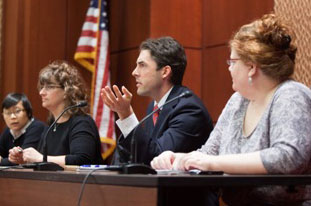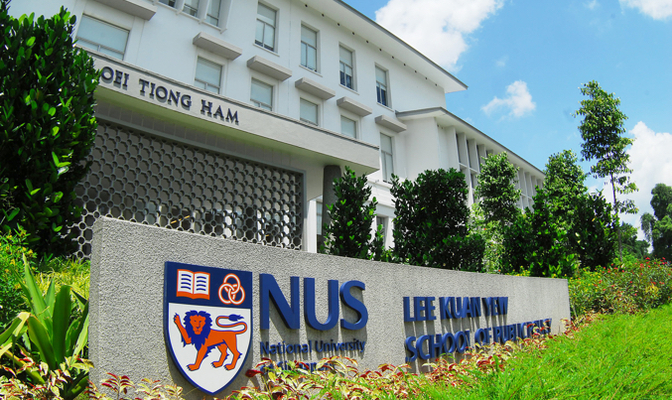Students who pursue a degree in public policy go on to work in non-profit organisations, consulting firms, international organizations, and governments, serving public interest. These professionals offer solutions to global challenges employing quantitative analysis, economics, finance, management skills, etc. Whether your focus is on your local community or the society on a whole, a career in Public Policy is apt for those who want to make a difference to the world around us.
The best way to make use of your degree is to take up a cause that you’re extremely passionate about, and find an organisation that shares the same passion as you, to work for. Public Policy and Public Administration used to be seen as degrees taken up by mid-career bureaucrats. However, today more so than ever before, the Indian government has been hiring individuals from outside the civil service to help carry forward India’s Governance through the challenges of the 21st century. The next generation of India’s policy makers, more than ever before, will have to navigate the nexus between politics, governance, private sector and civil society. According to senior civil servants, this trend is likely to continue

To gain more insight into the subject, we spoke to Naomi Jacob, Co-founder, Coopita, and Alumni from Lee Kuan Yew School of Public Policy at National University of Singapore about a career in this seemingly burgeoning field, and here’s what she had to say-
1. How are Public Policy careers gaining traction in India and around the world?
The momentum of public policy is getting a lot of traction in India and around the world, government are promptly looking out for collaborations with public policy focused think tanks. In recent years, private and non-profit organisations increasingly require greater engagement with government regulators and thus, there is a greater demand for professionals skilled in public policy and international affairs to take up these roles. Things have changed so much today with everyone from large multinational corporations to start-ups creating public policy roles so that they can represent their interests and influence government regulation in their field.
- What types of organisations can one find work at in this field?
An education at the Lee Kuan Yew School of Public Policy is really the gateway to a world of opportunities. Our graduates are international change agents in a diverse range of fields. Our alumni continue to make a difference across the globe – refining public policy, establishing businesses and advancing non-profit movements. My peers have gone to become ambassadors, founders of non-profit organisations or social enterprises or consultants at international organisations. They are also helming leadership positions in private firms as well as driving research and scholarship in various fields.
Without my degree in public policy, I would not have had early exposure to social enterprise, which was instrumental in shaping my decision to become a founder of Coopita, as well as defining the type of business I wanted Coopita to be, namely impact driven. Since we started operations in June 2016, Coopita has worked with over 200 artisan communities across Asia, with a focus on the revitalisation and preservation of traditional crafts. Our impact outcomes are to provide stable livelihoods to our artisan partners, enable the empowerment of women artisans and to enhance environmental sustainability.
3. What are the long term benefits of a degree in public policy?
Six years post graduating, I would say the benefits of this degree that I value the most are two-fold:
- Firstly, the versatile nature of the degree imparts a skill to learn quickly and in-depth about lots of difficult topics, which was essential for me in my first job at the Monetary Authority of Singapore and in my current role as a first time entrepreneur.
- Secondly, you end up meeting an amazing cohort of really intelligent, driven people who have set out to make a difference in as many lives as they can. And it’s not just that you will end up having classmates from almost every imaginable country but that you get a crash course on a staggering breadth of new cultures and perspectives that would otherwise take very long to gain.

- What are the courses can students undertake and degrees offered by the Lee Kuan Yew School of Public Policy?
The Lee Kuan Yew School of Public Policy is one of Asia’s leading public policy schools in Asia. Our mission is to improve standards of governance and transform lives. We do this through developing good leaders who will impact change in the public, private and non-profit sector. The school offers six Master programmes and a PhD which seeks to provide thought leadership on Asia’s role in a changing world. The following courses are available:
- Master in International affairs
- Master in Public Policy
- Double Master Degree in Public Policy & European Affairs
- Master in Public Administrations
- Master in Public Management
- Master in Public Administrations & Management
- Phd in Public Policy
The adoption of innovative teaching methods helps students to acquire knowledge and practical understanding of the real world. A strong focus on team-teaching with experts from different disciplines also exposes students to diverse views.
- What are the necessary qualifications and other requisites to get admission for such programs?
TOEFL /IELTS is mandatory for all MPP, MPA and MPM applicants except those with a Bachelor degree conducted entirely in English. MIA applicants can choose to submit either a GRE, GMAT or LSAT score. LKY School runs on a yearly enrolment and the next cycle of applications for Academic Year 2019 will commence on 1 August 2018.
Key Application Steps
Before you proceed to make an online application, here are some key steps to take note of.
- Applicants are strongly encouraged to submit an online application. To access the online application system, you will be required to enter your email address and a 6-character password. You will not be able to change this e-mail address once you have registered. You can however, access your application to make any additions or edits before submission.
- To be considered for the 2018 intake, the application and all supporting documents must be completed and submitted by 11:59pm (Singapore time, GMT+8) on the day of the deadline.
- It is recommended that you have soft copies of the required documents before you commence. It will take you about 30 minutes or more to complete your application. Click hereto for the application documents checklist.





























